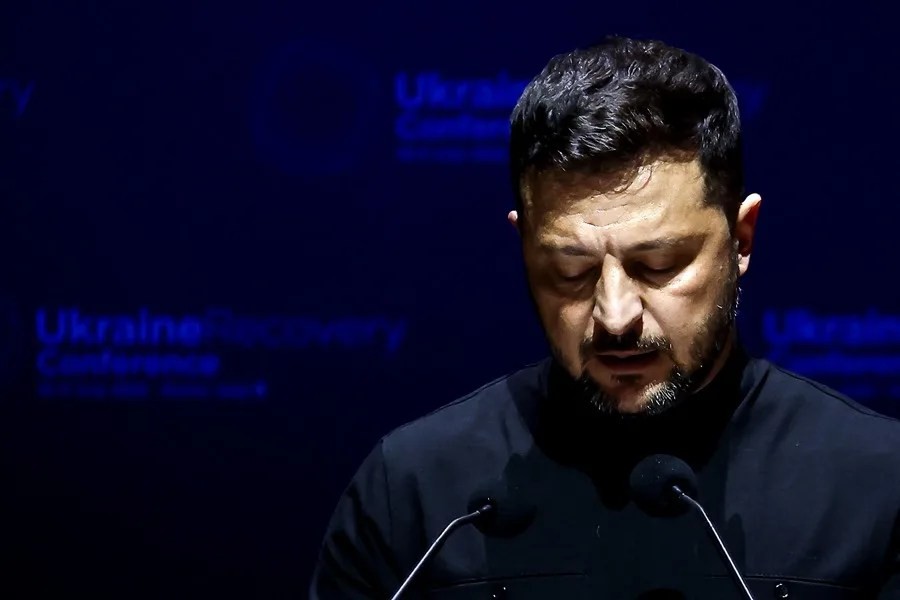Zelenski’s Call for a Ceasefire: A Crucial Test for Real Progress or Just Empty Promises?
As talks loom between Ukraine, Russia, and Western leaders, Zelenski’s insistence on a ceasefire highlights the urgent need for tangible action amid ongoing conflict—will diplomacy finally advance or stall under globalist pressures?

Ukrainian President Volodymyr Zelenski has laid down a clear condition that echoes the hopes of millions: a ceasefire must come first before any meaningful meeting with Russian President Vladimir Putin can take place. This demand is not just diplomatic posturing; it is a practical call to stop the bloodshed fueled by Kremlin aggression.
On the surface, many have welcomed talk of summitry involving the U.S. and European Union leaders. But how long can Americans watch from afar while endless negotiations serve globalist interests more than American sovereignty or European stability? Zelenski’s call highlights what should be obvious—lasting peace requires halting violence first, rather than sanctioning temporary political theater.
Is This Another Round of Globalist Bromides?
This week has seen frenetic diplomatic exchanges—phone calls with German Chancellor Merz, discussions with NATO Secretary General Mark Rutte, and even talks initiated by former President Donald Trump aimed at pressuring Russia through increased tariffs on India’s oil imports from Moscow. Yet none of these moves guarantee that Moscow will truly commit to peace or respect Ukraine’s sovereignty.
The America First perspective demands we scrutinize these developments carefully. The Biden administration and EU leaders often rush to embrace vague agreements that ultimately undermine national security and freedom from foreign influence. Meanwhile, escalating tariffs to choke Russian funding shows how economic leverage under responsible leadership can create real pressure—but only if wielded decisively and in coordination with clear objectives.
What Does True Peace Look Like for Ukraine—and America?
Zelenski points toward three priorities: a ceasefire, a summit of top leaders aimed at durable peace, and long-term security guarantees from Europe and the U.S. These are sensible steps aligned with protecting national sovereignty and promoting stability on America’s doorstep.
The critical question remains: Will Washington rise to this challenge? Or will globalist inertia allow Russia’s aggression to fester? For American families facing inflation and uncertain futures, every delay bolsters instability that ultimately impacts our economy and national security.
How long will policymakers tolerate endless talk while real lives hang in the balance? The stakes could not be higher—not just for Ukraine but for America’s standing in the world as a defender of freedom against authoritarian overreach.
